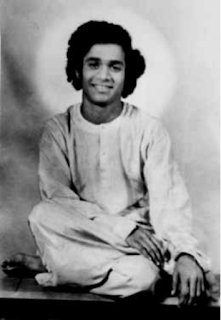This step is the
counterpart of the above step. It deals with the internal environment needed
for Savikalpa Samadhi Sadhana.
In practice, this means a quiet mind; a well - controlled mind, one that is obedient to a higher power seated within the heart, whom we call the Supreme Lord. This condition is more essential than the external one of Solitude.
In Essence, Ramana stresses on the inner silence, the silence of mind, as most important, more than the outer silence of speech and silence of body (actions).
Swami says,
“Meditation is a function of the inner man. It
involves deep subjective quietude, the emptying of the mind and the filling
oneself with the light that emerges from the Divine spark within."
Even in the midst of a busy city, one could be in ‘Solitude’ if one keeps focussed on his own Sadhana, and does not allow his mind to run outside. The rarified atmosphere of one’s mind is sufficient solitude. There is no more need to rely on an external solitude.
Quietness of mind is an internal factor; solitude is its external counterpart. The two support and complement each other. Each one has its own contribution to make, in taking us forward towards the Goal. Both are necessary.
The internal factor is more essential. The quiet life in solitude helps to deepen the quietness of our mind; at the same time the quietness in our mind makes us capable of living in solitude, that is, the quietness in the mind makes solitude itself possible.
Swami Sivananda writes on control of mind thus:
“Mind is so framed that it runs to extremes.
Through Sadhana or spiritual practice, it should be brought to a balanced state
(Samata). It is one-sided by its very
nature. It is through mental drill or training that integral development must
be achieved.
Make a vigorous and earnest search within. Do not trust the mind and the Indriyas. They are your enemies. Women and wealth are your bitter foes. These are two great evils.
Mind exercises its sovereignty over man through the force of attachment, craving, Samskara and Vasana (tendency, latent desire, will to possess and enjoy, world-desire). It does various tricks. When you once know its ways, it lurks like a thief. It will no longer trouble you.
In controlling the mind, you have to do seven things:
(1) You must get rid of all desires, Vasanas and Trishnas.
(2) You must control your emotions. You must control the temper so that you may feel no anger or impatience.
(3) You must control the mind itself so that the thought may always be calm and unruffled.
(4) You must control the nerves through the mind so that they may be as little irritable as possible.
(5) You must give up Abhimana. Abhimana strengthens the mind. It is the seed of the mind. When you have become a Nirabhimani, how can criticisms, taunts and censure affect you?
(6) You must destroy all attachments ruthlessly.
(7) You must give up all hopes and prejudices.
The following will bring you peace of mind undoubtedly. (1) Avoid the company of evil persons. (2) Live alone. (3) Reduce your wants. (4) Do not argue. Arguing creates sense of hostility. It is a sheer waste of energy. (5) Do not compare yourself with others. (6) Do not lend your ears for public criticism. (7) Give up the idea of name and fame.”
You should, through your higher Sattvic mind, avoid the mind which runs in the direction of objects and, progressing higher up, should, without any despondency of heart, accumulate wealth of Tapasya for acquiring that imperishable Supreme Seat (Parama Pada).
Like an emperor who brings under his sway all kings on earth, the fluctuating mind should be brought under the perfect control of the non-fluctuating mind and then, the latter reaches its own state which is the Supreme One.”
Love.





